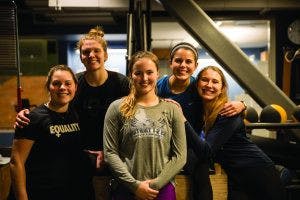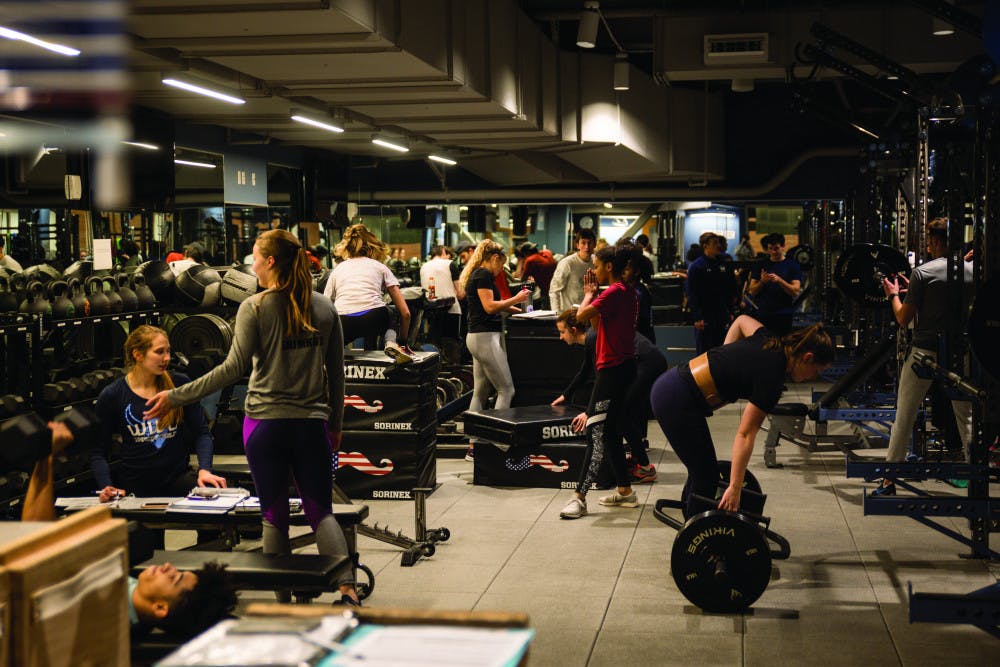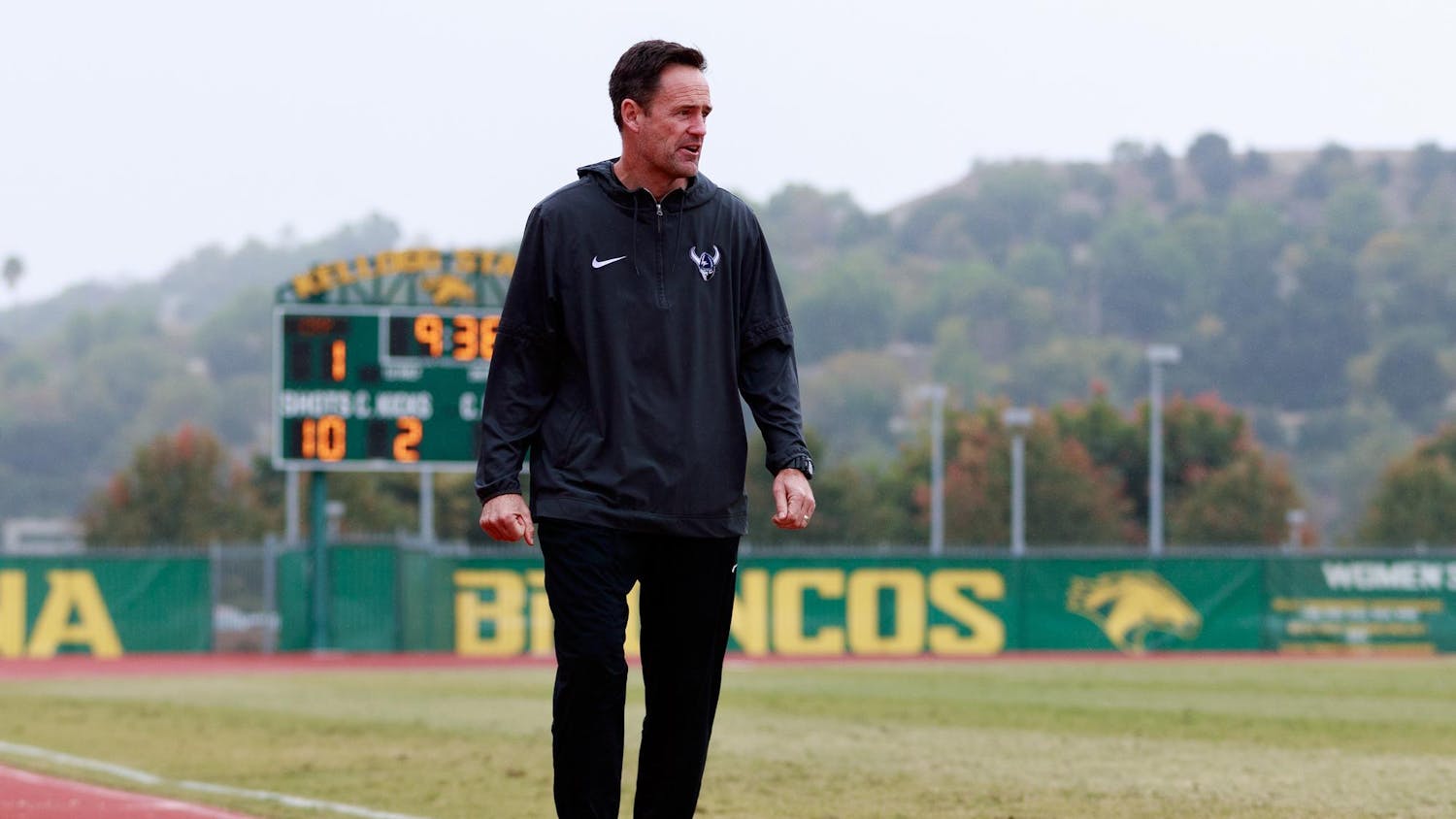Maintaining a positive body image can be a challenge for anyone. For female-identifying athletes who compete in strength-based events, that challenge is combined with the need to maintain a strong physique.
According to a 2006 study by Lifespan, a nonprofit healthcare organization based out of Rhode Island, “Adolescents with negative body image concerns are more likely to be depressed, anxious and suicidal than those without intense dissatisfaction over their appearance.”
For athletes like junior Track and Field javelin-thrower Raquel Pellecer, those image concerns often get overridden by more pressing ones.

“We see [training] as a positive, and worth it to get bigger. We’re trying to show people that you can be feminine in your own way,” Pellecer said. “You don’t need to look like a magazine model.”
Pellecer said training for her sport has had a noticeable impact on her body. Since her freshman year as a thrower, Pellecer has gained mass and reshaped her body in such a fashion that she still fits into all of her old clothes, even though she’s gained almost 20 lbs of muscle. Despite the success she’s had in her sport since gaining muscle, Pellecer also said the strong bodies of athletes, particularly those who identify as female, can feel stigmatized.
“You definitely get thicker,” Pellecer said. “Some athletes don’t want to get bigger, but our coaches help us see that building mass is a positive because of how it affects our performance.”
Sophomore javelin-thrower Natalie Vetto is another student athlete who said she has seen significant changes in her physical appearance due to her resistance training in the weight room. But like Pellecer, she sees those changes as being positive.
Vetto said she didn’t do much lifting in high school, and that her time in the weight room at Western has been her first real foray into resistance training. What’s more, she said she’s quite pleased with the results.

“Throwing javelin is definitely something I enjoy. I’ve never thought it wasn’t worth it,” Vetto said. “It’s a positive environment here, and everyone wants to get stronger.”
Assistant Coach Ben Stensland, who helps coach the throwers, said gaining muscle mass isn’t necessarily the goal for their female athletes. He stressed that resistance training is crucial to injury reduction and prevention and that muscle gain can be a byproduct.
Ron Arnold, a fitness and instructional coordinator at the Wade King Student Recreation Center, reiterated the positive effects of resistance training for the body, regardless of gender identity.
He acknowledged that he’s often heard the concern from female-identifying athletes that they’ll become too bulky from lifting weights, but he said that those fears can usually be assuaged through education.
Like Stensland, Arnold stressed the importance of resistance training as a form of preventative care for the body.
“Resistance training can help hormonal balance, energy balance, keep your blood sugars healthy and prevent injuries,” Arnold said. “It can even delay the onset of osteoporosis in women.”
Arnold also credited the Rec Center staff with helping dispel misconceptions such as that women should avoid lifting if they don’t want to bulk up. He said their staff is made up of kinesiology graduates with a firm grasp of the science behind fitness.
Arnold also gave credit to their in-house dietician, Darcie Hill, and said she is always willing to make appointments with students to help them hone in on their fitness goals through properly fueling their bodies.
For her part, Pellecer continues to push forward, striving to become stronger. She said she tries not to hold herself to traditionally feminine body standards, and she said she feels good about that.
“Having confidence in what you’re doing is more fulfilling than aesthetics for their own sake,” Pellecer said. “I feel better and more confident in my body because of my javelin training.”
To any fellow athletes out there who are reluctant to hit the dumbbells due to concern over not conforming to perceived societal body norms, Pellecer has a message:
“Be open to learning and failing. And be fearless in what you can do. Trust your body.”





